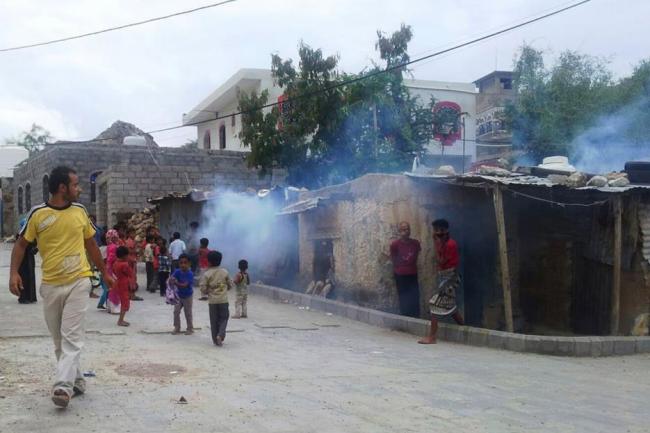
UN official warns health and education systems in war-torn Yemen near collapse
“Eight months of conflict have had a devastating effect on all aspects of life in Yemen, with the health and education sectors the hardest hit,” said the Head of Operation for the UN Office for the Coordination of Humanitarian Affairs (OCHA), John Ging in a news release.
Ging also reported that a sharp reduction in imports and a ban on exports have reduced public and commercial revenues, resulting in collapsing services and livelihoods.
“Ministries are running out of money for supplies and salaries for health workers and teachers, and there are widespread shortages of medicines to treat chronic illnesses. MSF [Médecins Sans Frontières] is warning of a catastrophic situation for dialysis patients in particular,” he added.
On his visit, from 15 to 17 November, Ging met affected people, humanitarian partners, and representatives of the Government and the opposition and stressed that everyone “called for an immediate end to the conflict and the resumption of normal commercial activities.”
Ging commended the work of Yemeni civil society organizations, national and international non-governmental organizations, the International Red Cross and Red Crescent (ICRC) and UN organizations during the course of the crisis.
"There has been an impressive scale-up of aid operations thanks to the heroic efforts of humanitarian staff, but we must be clear that humanitarian agencies cannot substitute for a country's public services,” noted Ging.
OCHA reported that UN and its humanitarian partners are doing their utmost to deliver aid despite the challenging environment.
Agencies are distributing food to 2.4 million people on a monthly basis, providing medical supplies to improve health access for 2.6 million people, and treating 97,000 severely malnourished children, OCHA said adding that country-wide vaccination campaigns continue.
Further, the UN agency said that emergency water and sanitation support has reached 3.7 million people since April.
Ging stressed the need for all parties of the conflict to respect International Humanitarian Law saying that it is ‘unacceptable to prevent aid deliveries or to steal humanitarian supplies.’
Lastly, he appealed for the immediate lifting of the siege on Taiz city and an end to the bureaucratic obstacles to aid delivery inside Yemen.
Photo: WHO Yemen
Support Our Journalism
We cannot do without you.. your contribution supports unbiased journalism
IBNS is not driven by any ism- not wokeism, not racism, not skewed secularism, not hyper right-wing or left liberal ideals, nor by any hardline religious beliefs or hyper nationalism. We want to serve you good old objective news, as they are. We do not judge or preach. We let people decide for themselves. We only try to present factual and well-sourced news.







